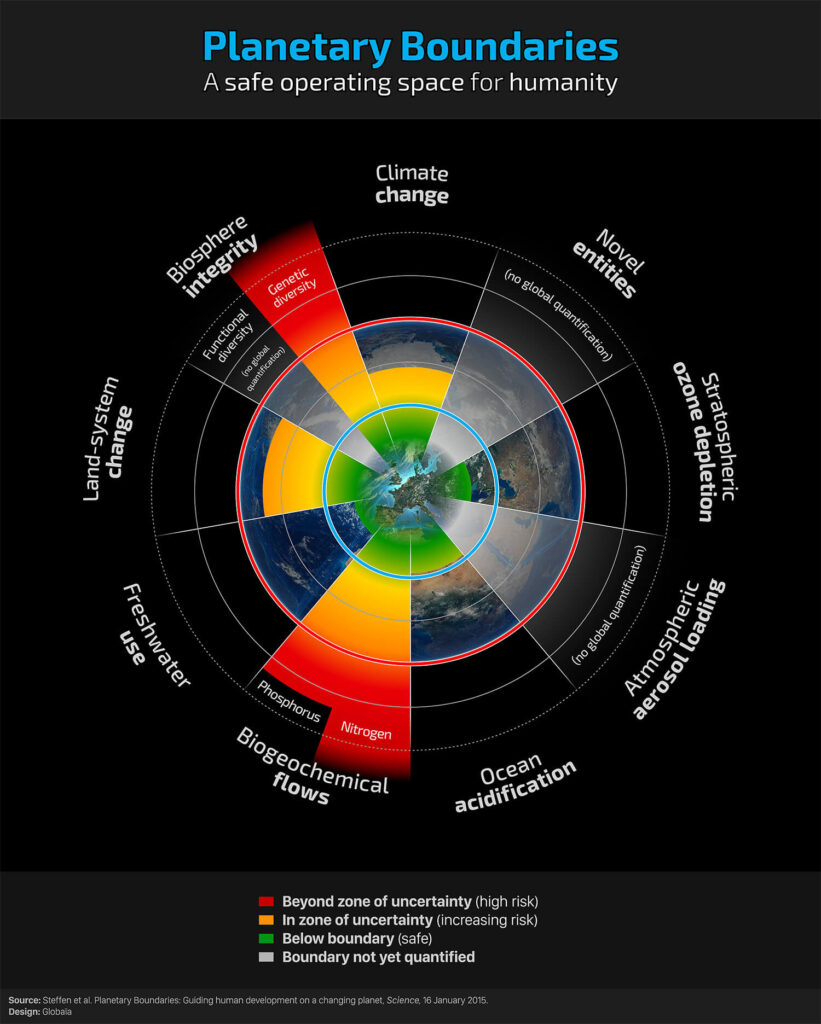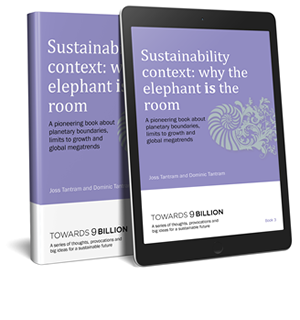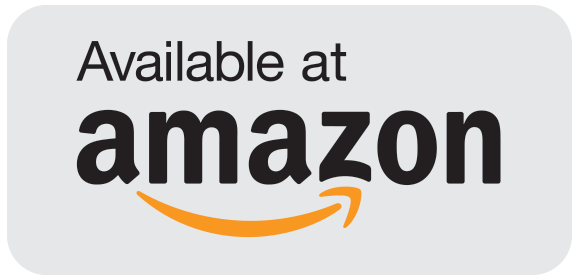The next big things in corporate sustainability
“You can’t stop the waves, but you can learn to surf.”
Joseph Goldstein
Context is a game changer for sustainability professionals and for the businesses that they work with.

A dramatic statement is often a good way to start an article – and sometimes they are justified, this piece explains why I think that context heralds big changes for the practice of sustainability and CSR.
The traditional focus of CSR and sustainability has been upon continual improvement. An emphasis upon reduction rather than reinvention; it is based upon the idea that meaningful sustainability achievements can be delivered through modest year-on-year advances. That may be the case, however it is very difficult to really know! Achieving a given target doesn’t tell you whether your position is sustainable unless you are able to understand the planet’s ability to sustain that activity. This is what context provides, it helps describe the ‘safe space’ for our activities, and articulates limits for activity.
The idea of limits is not new. Thomas Malthus talked about the limits of population and food availability in the late Eighteenth century, and the Club of Rome did so famously in their 1972 book The Limits to Growth. While each have been criticised for aspects of their predictions, the central observation remains true – we have only one planet to live on.
The recognition of clear limits is becoming ever more important for sustainability professionals. These can be socially agreed (for example the need to keep within 2 degrees of warming) or can arise from scientific approaches. The Nine Planetary Boundaries were developed by Johan Rockström et al in a 2011 paper in Nature. Put simply, it’s a concept seeking to identify and quantify aspects of the Earth’s natural systems which present close-to-absolute thresholds we should not cross.
This idea has massive implications for company sustainability. These are largely two-fold: at the strategic level – to recognise the company’s relationship to the limits (dependency and vulnerability), and at the practical level; working out how to relate company performance to these limits. A number of approaches have developed to assist with translating the idea of limits into practical action.
Context based sustainability is one, as is the science based targets initiative, which focuses on inspiring businesses to set greenhouse gas emission reduction targets in line with climate science. In addition, in 2015 The Stockholm Resilience Centre provided this briefing on how the Planetary Boundaries relate to business.
Multiple capitals concepts seek to identify and prioritise sources of value other than financial. They are at the heart of developing approaches to reporting sustainability, such as the International Integrated Reporting Council’s (IIRC) Capitals Framework. and the Sustainability Standards Accounting Board (SASB) Conceptual Framework. Another recent example is the release on July 13th 2016 of the Natural Capital Protocol. Developed by the Natural Capital Coalition, this provides guidelines to support better decision making by considering how we interact with nature and specifically natural capital.
These concepts and initiatives bring rigour and wider perspectives, but why are they game-changing? The answer lies in a fundamental shift in risk management.
Much strategic analysis focusses upon ‘risk-from’, i.e. by asking the question ‘what are the strategic issues that may affect our ability to execute our chosen strategy?’ For me, Planetary Boundaries introduce a ‘risk-to’ dimension. They therefore imply the alternative question ‘to what extent does our chosen strategy impact upon issues or conditions that will accelerate unsustainability and instability?’
You can already find companies that express their sustainability strategies not in the form of doing progressively less, but in a wider context of the big picture trends and trajectories that will affect the planet as a whole. For instance, here is an overview of how Unilever approaches these issues, and here is Bosch’s analysis.
New concepts and tools are providing a valuable guide to the territory of sustainability and also new means to help navigate a safe path. However, the goal of all sustainable behaviour shouldn’t simply be focused on impact reductions but instead upon positive contribution.
Explore further
More ideas on capitals and context can be found in ‘The elephant is the room’, the third of our Towards 9 Billion book series, designed to provide inspiration, hope and practical ideas for everyone working to build a sustainable future. 
There are 5 in the series and each is available as an eBook or a hardcopy version from Amazon.

You can also access free excerpts of each book directly from us by going to www.terrafiniti.com/towards-9-billion-books
This piece was originally published by Edie on 26/08/16
I help busy people in ambitious companies explore their sustainable future. While I don't know if we're a good fit for your business, why not contact our sustainability consultants so we can learn more about your unique challenges?
Talk to our sustainability consultants
Leave a Reply